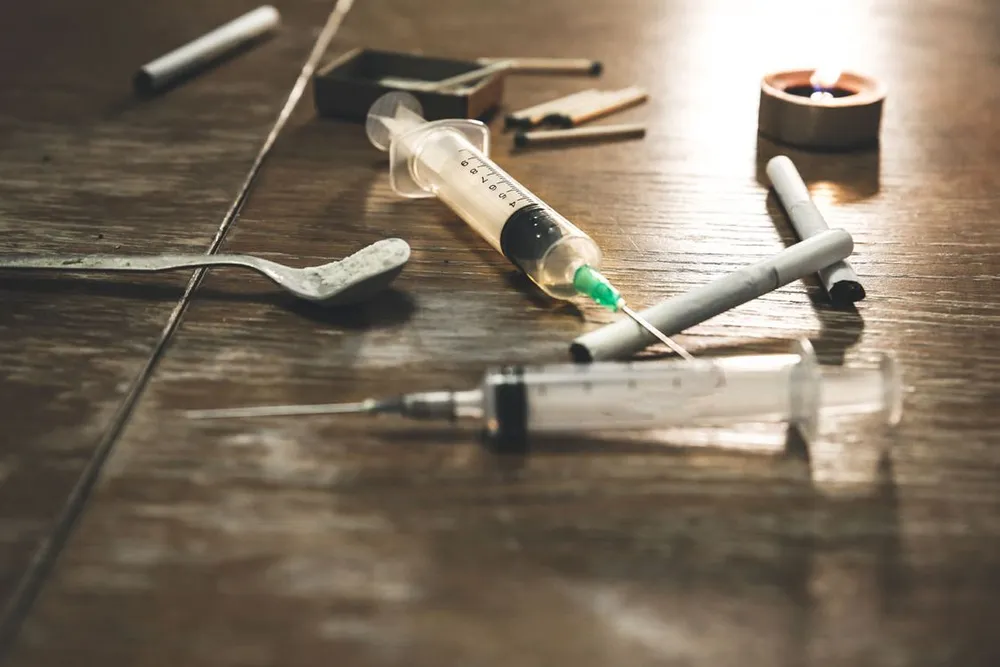What Is Black Tar Heroin?
Like other heroin substances, black tar heroin is extremely addictive. It can be used in a way that leads to severe addiction, painful withdrawal, mental health problems, and even fatal overdose.
In general, heroin has a long history in the United States and comes from diverse geographical locations. It’s called “black tar” heroin because of its brown or dark black appearance. Moreover, it has a thick, sticky consistency that resembles roofing tar. When hardened, it can also look like a piece of coal. Unlike the more well-known white heroin that comes in powdered form, black tar heroin is unrefined.
Like other substance abuse and addiction protocols, black tar heroin requires comprehensive treatment that includes detox and a residential program. A person addicted to black tar heroin needs more than just detox. They need physical and psychological treatment, which will make help them have a better chance of living in long-term sobriety.
What Are The Signs Of Black Tar Heroin Use?
Heroin is a highly potent opioid drug. Due to this, a person may have an intense craving to use it again after only trying it once. When use becomes compulsive, many people continue to use even after it begins harming them physically or mentally.
As black tar heroin use changes into addiction, the quality of a person’s life can go downhill quite fast. Ignoring other responsibilities in life, such as family, relationships, or job, is only the beginning of heroin abuse.
Once addiction is in full-swing, they will likely show the following signs:
- Tolerance: After a normal dose, they do not feel the euphoric effects they used to feel. This often leads to higher dosages.
- Dependence: Regular use causes the body to become dependent on black tar heroin. Without it, the body cannot function normally. Thus, strong cravings accompany this symptom.
- Withdrawal: A person who is dependent will experience uncomfortable and likely painful withdrawal symptoms if they quit heroin use “cold turkey.”
What Are The Short-Term Effects Of Black Tar Heroin?
Though black tar heroin can be smoked, impure heroin is often dissolved and diluted for injection by way of a needle. Injection into a vein, into a muscle, or under the skin are common modes of use. Due to its potency and unrefined quality, black tar heroin’s effects have a quick onset, especially by injection method.
As feel-good, euphoric effects begin, a person may also experience the following short-term negative effects of black tar heroin:
- Clouded thoughts
- Dry mouth
- Intense itching
- Legs and arms feel heavy
- Nausea and vomiting
- Warm, flushed skin
Moreover, because black tar heroin is unrefined, it is more easily subject to contamination. One study found increased outbreaks of soft tissue infections and toxic shock syndrome resulting from “bad” black tar heroin. These short-term risks are just a small slice of the dangers of black tar heroin use.
What Are The Long-Term Effects Of Black Tar Heroin?
Using black tar heroin even just once can be dangerous because of its addictive quality. However, the long-term effects of continued use can be detrimental to the brain and body. The physical and mental long-term effects of black tar heroin include:
- Addiction
- Brain damage
- Depression
- Hormonal problems
- Insomnia
- Overdose
- Sexual dysfunction (for men)
Overall, black tar heroin can put your health in fast decline and cause your immune system to weaken. Respiratory depression is also a significant risk, as well as tuberculosis and certain types of pneumonia.
What Are The Signs Of Black Tar Heroin Overdose?
While overdoses aren’t always fatal, they have the potential to be and aren’t worth the risk. On the one hand, the first dose of black tar heroin may cause an overdose for one person. On the other hand, an person abusing it for many years may overdose much later.
Signs of black tar heroin overdose include:
- Constipation
- Delirium
- Drowsiness
- Faint heartbeat
- Intestinal or stomach spasms
- Low blood pressure
- Pinpoint pupils
- Tongue discoloration
If you suspect you or another person are showing these signs of overdose, calling emergency medical services as soon as possible could save a life. If administered early enough, the opioid overdose reversal drug could reverse the overdose before it becomes fatal.
What Programs Can Help With Black Tar Heroin Recovery?
Medical detox and residential programs are the most common ways to treat heroin addiction. The aim of a medical detox program is to stabilize a person’s body while the drug is being cleansed from its system. In order to help assure a person’s safety and comfort as much as possible, 24-hour care and supervision are provided.
Medications can also be a vital component of a detox program. Medications can work to reduce withdrawal symptoms so that person can begin preparing for the next stage of treatment. The use of medications is often paired with behavioral therapies to help them maintain abstinence from black tar heroin in the long-term.
While it’s true that outpatient treatments for black tar heroin addiction do exist, a residential or inpatient program is the better solution. It is often recommended because of how severe the addiction can be. Moreover, residential programs address psychological addictions and provide a higher level of support. These programs should address the addiction’s emotional, mental, behavioral, and social elements.
Finding The Right Black Tar Heroin Recovery Program
The best residential treatment programs offer individualized treatments that are built on each client’s needs. When recovery is tailored to a client’s specific needs and recovery goals, they have a better chance of maintaining long-lasting sobriety.
If you or someone you know is struggling with black tar heroin addiction, don’t hesitate to seek help. Many recovery centers provide a variety of treatment options so that you can find the program that best suits your needs. Reach out to a team member at Impact Recovery today for treatment options—your healing journey can begin today!
